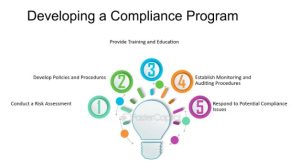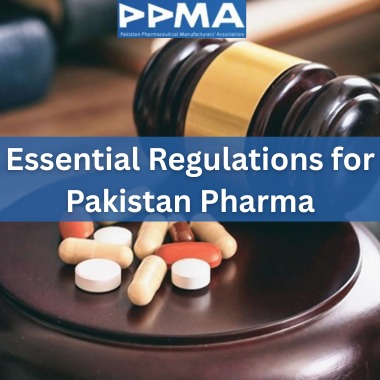Pakistan Pharma is a vital pillar of national healthcare development. It ensures affordable access to safe and effective medicines. However, navigating its regulations is often complex and evolving. Addressing these rules is key for sustainable pharmaceutical growth. Let’s explore the crucial frameworks shaping this vital sector.
Regulatory Framework and Its Impact on Pakistan Pharma
DRAP’s Role in Strengthening Regulatory Systems
The Drug Regulatory Authority of Pakistan (DRAP) plays a central role. It regulates production, import, licensing, and pricing of medicines. DRAP maintains the safety and quality of pharmaceutical products. It also aligns with global best practices and WHO guidelines.
Key Responsibilities of DRAP Include:
- Issuing licenses for medicine manufacturing
- Monitoring quality control standards
- Evaluating product safety and efficacy
- Setting price controls for essential drugs
These responsibilities support transparency and patient safety.
Pakistan Pharmaceutical Manufacturer Association (PPMA) & Regulatory Synergy
The Pakistan Pharmaceutical Manufacturer Association (PPMA) collaborates closely with DRAP. Together, they develop compliant, growth-focused policy environments. PPMA also represents industry concerns and encourages regulatory reform. This cooperation ensures a balance between compliance and innovation.
Licensing & Compliance in Pakistan Pharma
Licensing Essentials for Medicine Production
Obtaining a manufacturing license in Pakistan involves detailed documentation. Companies must demonstrate good manufacturing practices (GMP). Facility inspections, qualified workforce, and quality protocols are vital. This ensures consistency and product safety.
Basic Licensing Criteria Include:
- Adequate premises and equipment
- Qualified pharmacists and technical staff
- Validated quality testing systems
- Detailed documentation and SOPs
Without proper licenses, manufacturing becomes illegal and dangerous.

Role of PPMA in Supporting Compliant Practices
PPMA educates firms about licensing policies and compliance. It offers workshops, regulatory briefings, and legal support. This helps Medicine Companies in Pakistan stay aligned with DRAP standards. The result is a more structured and professional pharmaceutical environment.
Quality Control Mechanisms in Pakistan Pharma
Ensuring Safety and Efficacy Standards
Quality assurance is critical across all pharmaceutical production levels. DRAP mandates regular testing and reporting of product batches. Each medicine undergoes chemical, microbiological, and stability testing. Failure to meet standards can lead to license revocation.
PPMA’s Quality Support for Pharmaceutical Companies
PPMA promotes ISO-certified quality systems within the sector. It also lobbies for fair testing practices and infrastructure improvements. In doing so, it fosters trust between companies and healthcare providers.
Export Compliance and Regulatory Requirements
Export Licensing and DRAP Approvals
To export medicines, companies must meet additional criteria. DRAP issues export certificates only after ensuring compliance. Firms must also register products in target countries.
Export Requirements Often Include:
- Certificate of pharmaceutical product (CPP)
- Good Manufacturing Practice (GMP) certification
- Product registration in the destination country
Exporting boosts economic growth and global partnerships.
Support from PPMA in Export Documentation
PPMA helps firms streamline regulatory paperwork for exports. It also provides updates on international market regulations. This support strengthens Pakistan Pharma’s global presence.
Recent Developments in Regulatory Policies
Updated Laws and Guidelines in 2023–2025
Recent updates aim to digitalize application processes and reduce delays. DRAP launched online portals for licensing and tracking. New pricing guidelines have also been introduced.
According to DRAP’s 2024 Report:
- Application review times have improved by 40%
- Digital transparency has minimized corruption and bottlenecks
These reforms reflect the sector’s modernization efforts.
PPMA’s Advocacy for Policy Improvements
The Pakistan Pharmaceutical Manufacturer Association (PPMA) has been instrumental in pushing these reforms. Their feedback during stakeholder meetings shaped more inclusive policies. PPMA continues to press for smoother regulatory pathways and harmonized rules.

Challenges in Regulatory Implementation
Compliance Barriers Faced by Small Companies
Many small medicine companies in Pakistan face operational challenges. These include high costs of compliance and limited legal expertise. As a result, their growth is often slowed.
PPMA’s Role in Bridging Gaps
PPMA offers mentorship programs for small and medium enterprises (SMEs). It connects them with regulatory experts and auditors. This builds industry-wide compliance and collaboration.
Promising Future Through Regulatory Evolution
Exploring Innovation within Regulatory Boundaries
Despite challenges, Pakistan Pharma is evolving with time. Regulation today supports growth, exports, and investment. Transparency, digital access, and global compliance lead the way forward.
The Pakistan Pharmaceutical Manufacturer Association (PPMA) continues to lead regulatory adaptation. With strategic vision and stakeholder engagement, the sector moves confidently toward progress.
Conclusion
Pakistan Pharma thrives on strong regulations and responsible governance. These regulations ensure consumer protection and international credibility. Through the work of DRAP and PPMA, the sector grows sustainably.
Looking ahead, regulatory clarity will continue improving exports, innovation, and public trust. For medicine companies in Pakistan, compliance is no longer an option—it’s a growth strategy.


